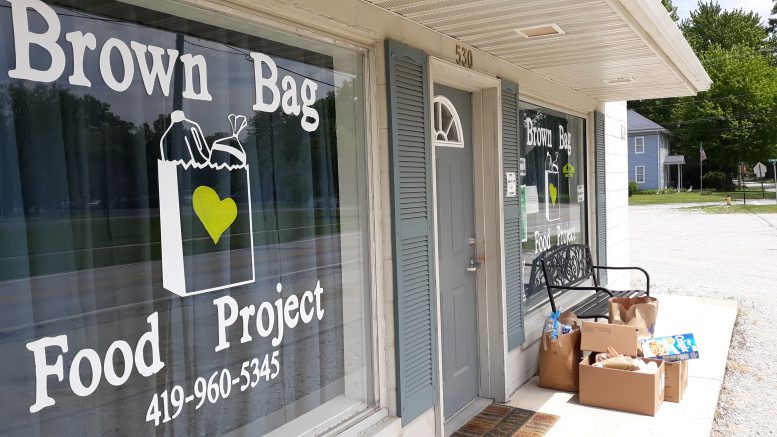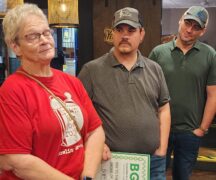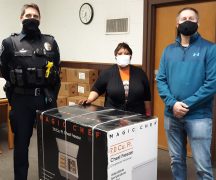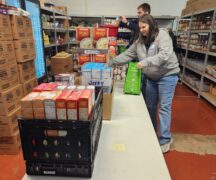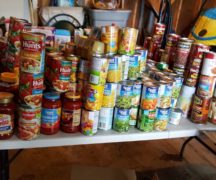By JAN LARSON McLAUGHLIN
BG Independent News
An estimated 15% of Wood County residents face food insecurity. That doesn’t mean they have nothing appetizing in their pantry or refrigerator.
“It means you’re really not sure where that next meal is coming from,” said Amy Jeffers, of the Brown Bag Food Project in Bowling Green. Jeffers and Peg Holland, both founders of the pantry, spoke recently to members of the Bowling Green Kiwanis Club.
Both stressed the need for food pantries to help stock empty household shelves. According to Jeffers, nearly half of the people facing food insecurity in Wood County do not qualify for government food assistance.
“That’s huge,” she said.
Many hold jobs, but are considered the “working poor.” Some miss the cutoff for government assistance by earning $5 a month over the threshold – yet they can’t put enough food on the table, Jeffers said.
Jeffers disputed the perception that people who can’t feed their families are in that position because they can’t budget their money.
“Food insecurity is deeper than that,” she said.
The “working poor” find themselves in impossible positions when they face unexpected medical bills, car repairs, or the need to purchase annual school supplies.
The vast majority of Wood County households have pantries, refrigerators and freezers filled with food. But it’s not so for 15% of local residents.
“They really, literally have nothing in their house,” Jeffers said. “There’s a need. It’s not just a want.”
The Brown Bag Food Project was born about seven years ago, to feed a need in this area. It was first housed in Holland’s garage, and fed about five families. But the need was much greater, Jeffers said.
“A lot of people were falling through the cracks,” she said.
The program got its own location at 530 Sand Ridge Road, and last year served 650 people a month.
“We help anybody that’s in need,” Jeffers said, noting that people don’t need to pre-qualify before picking up food. “We’re not going to turn anyone away.”
The Brown Bag Food Project will also make deliveries to seniors unable to pick up the food themselves.
In addition to canned and boxed foods, the pantry also provides fresh meat, produce, milk, eggs, cheese and yogurt. The organizers partner with Belleville Market to get fresh meat, and with Riehm Farms to get fresh produce.
The pantry has also branched out into hygiene products, since government assistance can’t be used to purchase items like dish soap, laundry detergent, shampoo or diapers, Holland said.
Pet food has also been added to the shelves, since pantry volunteers delivering food sometimes found people giving their own food to pets since they had nothing else to feed them.
Holland said the pantry also supplies homeless people with meals, such as pull-top foods or items that can be eaten straight from the can.
“Bowling Green has a fair share of homeless people,” Holland said. “A lot of these people are surviving by going to a gas station where they can get hot water for Ramen noodles.”
The pantry, operated by volunteers, is open every Monday, Wednesday and Friday from 5 to 6:30 p.m. Food drop-offs are accepted those days after 4:30 p.m., plus a food donation box is out front to accept donations at any time.
Brown Bag Food Project received a few CARES grants during COVID, and gets a small amount of funding annually from United Way.
“Other than that, it’s us singing and dancing,” Jeffers said, explaining that fundraising efforts are constant.

